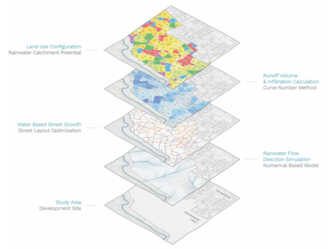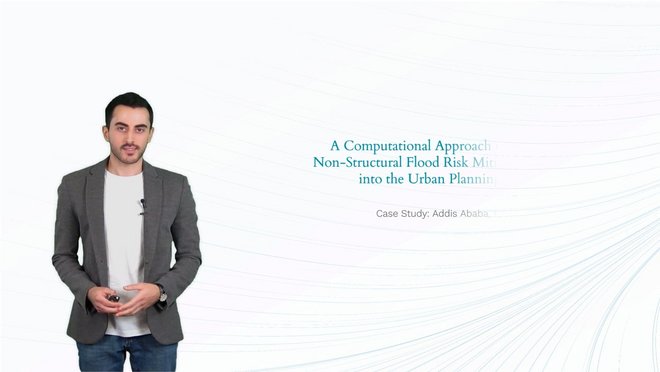
A Computational Approach for Integrating Flood Risk Mitigation Strategies into Urban Planning
Master Thesis by Gheyath Mohammed
Study Programme Integrated Urban Development & Design
2021
In this Master Thesis Gheyath Mohammed develops a new method for evaluating flood risks in urban design proposals and test the method on the case of a new urban quarter in Addis Ababa.

A Computational Approach to Flood Risk Mitigation Strategies in Urban Planning - Gheyath Mohammed (IUDD Master Thesis, 2021)
Klicken Sie auf den Play-Button, um externe Inhalte von Vimeo.com zu laden und anzuzeigen.
Externe Inhalte von Vimeo.com zukünftig automatisch laden und anzeigen (Sie können diese Einstellung jederzeit über unsere »Datenschutzerklärung« ändern.)
Urban flooding is a growing concern against a background of rapid urbanization and climate change. As both of the fields of urban planning and flood risk management have become increasingly complex over recent decades, interdisciplinary research is crucial for enabling a more comprehensive understanding of such complexities. This work aims to bring hydraulic knowledge into the urban planning field in order to mitigate flooding impacts caused by storm-water runoff driven by increasing imperviousness. Elaborately, an integrated computational model is proposed, as an early design stage tool, to asses certain urban form aspects against their impacts on stormwater runoff volume and surface infiltration in a selected development site in Addis Ababa, Ethiopia, where flood hazards are often poorly understood and understudied. The goal of the model is to offer a flexible tool to be utilized by urban practitioners with limited knowledge in hydrology. Therefore, it is built on a familiar and accessible platform with an uncomplicated work-flow along a parametric planning process. Namely, the impact of site topography, street network layout, land use configuration, and sustainable infiltration tools allocation is evaluated.

